|
We are about two weeks into our Lenten sojourn, and I’m not sure about your experience so far, but I know that it has already been a challenge for me. And that’s good! I wanted this Lent to more closely unite me to the Cross of Christ, not just for these forty days, but beyond this season, and God is answering this prayer in ways that I could never expect. In fact, he is delivering me from my own crosses so that I may know joy through this suffering.
So far, I’ve been able to take away two important lessons from my Lenten journey so far:
Life is hard. Our days are filled with many demands, and sometimes we fail to meet them. People will disappoint us. We may hurt others by our words or actions. We find ourselves exasperated, or at times feeling hopeless. But the one who hopes in the Lord knows that all of these trials of being human bring us to the Cross and teach us sacrificial love. This weekend at mass I was told, “Lent is a school of charity. Life is a school of charity” (Msgr. Andrew Wadsworth). As we navigate these crosses, God is literally stretching our hearts to be open to love – the love of the Cross – so that when we reach heaven, our hearts are like Christ’s sacred heart. And if he stretches our hearts through pain and sorrow, imagine how much God stretches our hearts through hope and joy! Through every trial and every gift we are being molded to become more Christ-like, capable of infinite love. If we could truly fathom this infinite love that God is preparing us for, we would live life on our knees in awe of the Cross. Truly we can say that life is a school of love, a school of charity. The readings today teach us how we can plant our roots to let the Lord more fully direct our lives. We are consistently given the image of a tree whose roots are planted near running water. This tree’s leaves never fade, and in even drought, it still bears fruit. For me, this tree represents my cross, whose confidence must rely solely in the Lord. God can only keep my leaves evergreen if I live off of his waters, God will perform miracles in my life if I let him. Truly letting go of my pride and independence is so hard, yet extremely humbling. It truly takes confidence and prayer. In this school of charity, I’ve learned that even the simplest of prayers can help me submit my cross to God each day: “Multiply my time, Lord,” or “Let me see you where you need me to.” When I say these prayers and trust God to fulfill them, he does. He’s stretching my heart to know his love. He carries my crosses for me. Truly, I am a mere student in this school of charity. As you pray today over your takeaways from Lent so far, I pray that you come to find peace in how the Lord is trying to carry your cross through His school of charity, and that you call upon the grace to let him do so. I pray that you reflect on where your tree is planted and that you want to live by God’s living streams. Ultimately, I pray that you know how loved you are. You are so loved that God is stretching your heart so that you may become more like him. He wants you to know infinite love, who is our Lord Jesus himself. “I pray that you, being rooted and firmly established in love, may be able to comprehend with all the saints what is the length and width, height and depth of God’s love.” – Ephesians 3:17-18 Alyce Anderson is a teacher in Washington, D.C.
0 Comments
Did you forget to wash your face this morning?
As someone who doesn’t like to draw attention to herself, stares and questions can make Ash Wednesday hard. It is the only day of the year (at least to my knowledge) where people can immediately identify you as Christian on sight. You don’t even have to do anything; it is right there, spelled out in black and white, on your forehead. For the distribution of ashes, the priest has a couple choices, but one option is to remind the people of their call to “turn away from sin and be faithful to the Gospel.” Jesus asks us to feed the hungry, clothe the naked, care for the sick, and to visit the imprisoned (Mt 25:34-46). How can your Lenten sacrifice live out the gospel message? When I was little, I would give up something that I loved for Jesus, like candy or, as in the case of one really difficult Lent, soda. Making any sacrifice, intending to show your love for God, is a great start, but I encourage you to take it one step further. If you decide to sacrifice your morning coffee, maybe money you would have spent at the coffee house could go to a local charity that provides winter coats for the homeless. If you’ve noticed that you being spending a little too much of your Saturday mornings watching television, this Lent might be a wonderful time to volunteer to stock shelves at your local food pantry or to serve meals at the soup kitchen. Maybe you could wake up an hour earlier to take a lonely, elderly neighbor to Mass. This Lent is the perfect time to be a living witness to the gospel, but that witness should continue even after Easter. That does not mean that you should give up coffee for the rest of your life or that you should never spend another Saturday morning watching television, but it does mean that our desire to make sacrifices out of love for Jesus shouldn’t end just because Lent does. This Ash Wednesday, I encourage you to think about not just how you can live the gospel during the next forty days, but how can you make it a part of your daily life. Ash Wednesday should not be the only day where people can immediately tell that you are Christian; your actions should make it crystal clear all throughout the year. There is no greater compliment than for people to be able to tell that you belong to Christ. Wear your ashes as a proud witness to your belief in Christ, answer any questions that come, and you just might inspire someone else to start his or her own faith journey. Jennifer Beckmann is an Administrative Secretary for the United States Conference of Catholic Bishops. For more information, be sure to check out the Catholic Apostolate Center's Lenten Resource Page! This past Sunday, we celebrated the First Sunday of Advent, the time of preparation for the coming of Christ. This Advent season also signals the beginning of the liturgical New Year. Now, I’m the kind of girl that has been secretly listening to Christmas Carols since mid-November (with headphones and lowered volume so no one knows my secret!) so Advent is one of my favorite times of year. As a little girl, I loved the buildup to Christmas and loved helping my mom prepare our house for the torrent of annual Christmas events. From decorating the tree to baking cookies, I loved it all.
When we were little, my mom modeled an activity we did in school, placing an empty manger on our mantle with a bowl of straw. She explained to my brother, sisters, and me that Advent was about preparing for Christ’s birth and we had to prepare a comfortable crib for him by filling the manger with pieces of straw. She encouraged us to do kind things for those we knew and when we did to place a piece of straw in the manger. Throughout Advent we delighted in finding ways we could add more to the manger. The one rule that she had was that we could only place straw in the manger quietly, without bragging of our good deeds to each other, and we had to decide personally what qualified to place straw in the manger. The straw grew and grew and by Christmas the manger was full, ready for Christ. Although this activity seems small in the hustle and bustle of the Advent season, it taught my siblings and me a lot about what the season was really about. Even as children, my mom strove to make sure that while we could get involved and excited about preparing for Christmas, we had to understand the true meaning behind the season. Advent, she always explained, was about preparing for the coming of Christ and not simply getting excited for Santa to visit. While we celebrate Advent and Christmas in many different ways, the important thing to remember is just how miraculous the Incarnation truly is. The miracle of the Incarnation is that Christ was made known to us in human form, to ultimately sacrifice Himself for us. While this time of the year has many stresses as we try to prepare for all that is expected of us, keeping the “true meaning of Christmas” in mind throughout Advent is a good habit to get into. As you begin this Advent season, I encourage you to take some time to remember what we are preparing for. The selfless love that Christ demonstrates is what we celebrate this Advent season. Take a moment to step back and reflect on how you can prepare yourself for His coming. Rebecca Ruesch is the Blog Editor for the Catholic Apostolate Center For more information, check out the Catholic Apostolate Center's Advent Resource Page! Today is Thanksgiving Day! Many of us are spending the holiday in the warm comfort of our homes surrounded by our family and friends, eating amazing turkey dinners, and thanking the Lord for all that he has given us! Each of us have our own family traditions that make the holiday our own. Every year for as long as I can remember, my mom pulls out the turkey, and before stuffing it, comes up with a little jingle and makes the turkey dance. Thanksgiving would not be the same without that little tradition, but while these traditions mean so much to us, we must remember that 2000 years ago God sent his only son to become man, suffer and die on a cross, and be raised from the dead and there is nothing for which we can be more thankful!
Today’s psalm is a wonderful reminder of this: “Blessed are they who are called to the wedding feast of the Lamb.” What a perfect psalm for a day of feasting! However, we need to take care to not confuse ourselves about this wedding feast. This is not a feast of turkey and stuffing, or of wine and champagne, but rather a call to participate at the Eucharistic table where we have been blessed to partake in the feast of the Body and Blood of Our Lord Jesus Christ. In Greek, the word “eucharistia” means “thanksgiving.” We are all called to this Eucharistic table, this thanksgiving table. We are all called to the wedding feast. Christ made that possible through his suffering and death on the cross. Christ’s sacrifice did not just allow us to be here today celebrating with our families and praising his name. Rather heopened the heavens to us, invited us into the wedding feast, and taught us how to participate in that feast with him. Is it easy to give ourselves so completely to Christ and the wedding feast? Of course not. Especially at this time of the year when we say “Thank you” one day and are out shopping Black Friday deals the next. This is a season that is a constant struggle between material goods and celebrating the life of Jesus Christ, and yet we persist on. We have to; we have a deep desire for Christ in our lives. During this time of Thanksgiving and as we begin the season of Advent let us take a moment each day to be thankful for Christ’s suffering and death and for his presence in our lives. Thanksgiving gives us the perfect opportunity to begin this dialogue with God! Let us prepare our hearts and minds and give thanks to the Lord! “Never forget that there are only two philosophies to rule your life: the one of the cross, which starts with the fast and ends with the feast. The other of Satan, which starts with the feast and ends with the headache.” ~Archbishop Fulton Sheen Nicholas Shields is a young professional in Washington, DC. As I finally sit down to write this post, I once again have that awful realization that I’ve let my tendency to procrastinate get the best of me. And, once again, I beat myself up over it because I know I’ve failed to follow through and honor my word: “You have a college degree! You should know how to properly manage your time! You’re better than this! Stop being such a failure!” and on, and on. It’s a cycle of self-deprecation that so many of us fall into, particularly young adults.
When I did some investigation on St. Jerome, whose feast is today, I laughed at myself over that train of thought. Most well-known as the biblical scholar who revised the Latin Bible (generally known as the Vulgate), this Doctor of the Church was also incredibly hard on himself when he failed. Butler’s Lives of the Saints says of Jerome: He was, as someone has said, no admirer of moderation whether in virtue or against evil. He was swift to anger, but also swift to feel remorse, even more severe on his own shortcomings than on those of others. A pope is said to have remarked, on seeing a picture of Jerome striking his breast with a stone, "You do well to carry that stone, for without it the Church would never have canonized you." I suppose we young adults are in good company when we, too, are hard on ourselves for missing the mark. It’s really no wonder Catholic young adults have such difficulty accepting those times we fall flat on our faces. Fresh out of our academic careers, whether high school or college, we’re used to very high expectations on our performance. We tend to gauge our self-worth on quantifiable “goals”: our GPAs, extracurricular involvement, “likes” on Facebook, retweets on Twitter, number of job interviews, etc. Every time we miss the mark we’ve set for ourselves, it somehow translates to utter personal failure. This, of course, is foolishness. It’s all well and good to be involved and occupy our time with things. St. Jerome himself said, “Be ever engaged, so that whenever the devil calls he may find you occupied.” It’s another thing, though, to obsess over being occupied and, thus, increasing our chances at “being successful”. We know it in our heads, but fail to grasp it in our hearts, often at great detriment to our interior lives. All of these “real world” struggles have a profound effect on our spiritual well-being. As soon as we begin to think poorly of ourselves for underperforming in worldly things, we become overly critical of our spiritual shortcomings. We keep failing at (insert your habitual sin(s) of choice) and beat ourselves up every time. This can be even worse for the soul than the particular sin itself; we begin to believe that we’re not worthy of being fixed. So what is one to do? I’m no spiritual guru, but I can share a few things that continue to help me overcome this recurring sense of unworthiness. 1. Daily Prayer- It goes without saying that daily prayer is essential. Even if you start with “Hey God, it’s me again. I’m sorry I keep failing at this. Please help”, you’ll reap the benefits immediately. Like with any other relationship, frequent dialogue is of primary importance. 2. Mass- The Eucharist is literally the greatest physical thing in the world: Christ in the flesh. We have the opportunity to receive Him every single day; take advantage of it. And while you’re at it, take a leap of faith and try out… 3. Reconciliation- Yes, the oft-dreaded Confessional. Admittedly, I absolutely hate going—but I sure love leaving! While it’s hard to do, it’s like anything else in life: the greatest reward comes from the greatest sacrifice. Take a leap of faith if you’ve been away for a while. The “spiritual car wash” really is one of the greatest gifts God offers us. 4. Spiritual Direction- Regular dialogue with a spiritual guide provides an objective view of our journey. It takes a level of openness and vulnerability, but having someone to walk with gives us much-needed encouragement and accountability. 5. Patience- St. Francis de Sales said it best: “Have patience with all things; but, first of all, with yourself.” We’re humans, and fairly young ones at that. The expectation we place on ourselves to be perfect is so unreachable because we’re inherently imperfect. We’re constantly developing, growing, falling down and getting back up again. It’s only God who can make us perfect; we just keep getting in His way. The next time you go all St. Jerome on yourself, drop that stone and look instead to the One who is Perfection itself. He’ll help you back up on your feet every time. Ad Infinitam Dei Gloriam Jay Schaefer is the Webinar Associate for the Catholic Apostolate Center and a civil engineer in the Baltimore Area. When he broke open the fifth seal, I saw underneath the altar the souls of those who had been slaughtered because of the witness they bore to the word of God. They cried out in a loud voice, "How long will it be, holy and true master, before you sit in judgement and avenge our blood on the inhabitants of the earth?"
(Revelation 6:9-10) As Christians, we are tasked with following the teachings of Christ over those of the world. Doing so often puts us at odds with the latter, amid accusations of fostering inequality, forcing our beliefs on others, adhering to obsolete traditions, or getting involved in matters that do not concern the Church. It’s true that there have been many efforts over the centuries to silence Christians—persecution is nothing new to the Church—but Jesus had warned that believing in Him would not make us popular in the eyes of the world (John 15:18, c.f. 1 John 3:13, 2 Timothy 3:12, 2 Corinthians 4:8-11, Revelation 2:10). The most recent evidence of persecution can be seen in the ongoing ISIS attacks in the Middle East, where people who have been living in areas that have been Christian for nearly 2,000 years are suddenly being forced to convert or die. Though this grave situation is happening half a world away, it is critical that we do not remain apathetic during our daily routines. Cardinal Donald Wuerl of Washington, D.C., in his closing remarks at The Catholic University of America’s Mass of the Holy Spirit, warned that human atrocities can occur if people remain silent about the plight of others. As Christians, we are all united in the body of Christ through our baptism (see 1 Corinthians 12:12-26, c.f. Romans 12:15) and as such, we must care about what affects another member. To that end, Saint Paul writes, “If one member suffers, all suffer together; if one member is honored, all rejoice together.” While it is easy to forget the persecution occurring beyond our borders in our comfortable day-to-day activities, we cannot simply be sorry for the terrible suffering endured by others—these are truly our brothers and sisters in the faith who need our continuous compassion and support! We may not be able to fully imagine the terror they are experiencing but we can at the very least offer prayers and sacrifices (i.e. suffer with them) on their behalf. Never doubt the value of prayer. It remains a most powerful means of comfort, hope, and strength from and in God. Pope Francis has stressed that “prayer, in the face of a problem, a difficult situation, a calamity…is opening the door to the Lord, so that He can do something. If we close the door, God can do nothing!” When we offer our prayers, we are also expressing our trust that God is more powerful than the problems presented by the world—He can bring good out of evil—as we read of many biblical miracles when God’s people prayed for deliverance and forgiveness. When we pray, we remember the needs and welfare of our brothers and sisters in the faith and become united through our communication with God. With sincerity and reverence, the words spoken aloud or in one’s mind and heart are infinitely more effective than simply pitying the plights of others. In spite of all the terrors and injustices reported to and/or experienced by us each day, let us never forget to hope! Suffering is indeed a part of life, but by the Passion and death of Christ, salvation for the world has been achieved. We can take comfort and rejoice that our own suffering can be joined with His and offered up as gratitude for His willing Sacrifice: because of His subsequent resurrection, we too can look forward to being raised. What will separate us from the love of Christ? Will anguish, or distress, or persecution, or famine, or nakedness, or peril, or the sword? As it is written: "For your sake, we are being slain all the day; we are looked upon as sheep to be slaughtered." no, in all these things we conquer overwhelmingly through him who loved us. For I am convinced that neither death, nor life, nor angels, nor principalities, nor present things, nor future things, nor powers, nor height, nor depth, nor any other creature will be able to separate us from the love of God in Christ Jesus our Lord. (Romans 8:35-39) Thomas Wong is an undergraduate student at The Catholic University of America and a member of the Catholic University Knights of Columbus. “Wow, you got your hands full.”
If you’re a parent, it’s possible that you have heard this statement thrown in your direction before. My wife and I, as we approach our seventh wedding anniversary, have three children. I find it amazing when people say “you got your hands full” when I am only holding one of my children. Imagine if they saw me when all three were climbing on me at the same time, or when they’re hungry and in a seemingly rehearsed chorus they ask for different foods in harmony. With the Third Extraordinary Synod of Bishops set to meet this Fall, Pope Francis and bishops from around the world will be discussing issues related to marriage and family life. I believe that the Catholic Church’s vision for married life offers a fresh and engaging perspective for our contemporary world. St. John Paul II declares, “The communion of love between God and people, a fundamental part of the Revelation and faith experience of Israel, finds a meaningful expression in the marriage covenant which is established between a man and a woman” (Familiaris Consortio 12). The approaching synod has caused me to reflect on how I live my vocation to married life. In his book Divine Likeness, Cardinal Marc Ouellet suggests that since Vatican II and St. John Paul II, “the theology of marriage has been developed in terms of ‘gift’…” (Ouellet 150-151). Men and women are created in the image of God (cf. Genesis 1:26-27). One of the great theological insights of Vatican II was the idea that “man, who is the only creature on earth which God willed for itself, cannot fully find himself except through a sincere gift of himself” (Gaudium et Spes 24). Only through a gift of self can people find their true purpose and meaning in life. This is because a total self gift both participates in and manifests the divine life to which we’re invited. Many of us are familiar with St. John Paul II’s Wednesday audiences which have become what we call the “Theology of the Body.” The giving of oneself in marriage, including in the conjugal act, is discussed in terms of a total gift of oneself. In a marriage covenant, husband and wife can manifest Trinitarian love, and the communion to which all people are drawn. For a husband or wife to hold back anything would be a betrayal of the communion which they’re guided by the Holy Spirit to manifest. Cardinal Angelo Scola in The Nuptial Mystery draws from St. John Paul II’s “Theology of the Body” and describes how the perichoresis of the Triune God is based on total self-giving. This is described beautifully in the following: Communio personarum exists in its perfection in the Three in One, because the Father gives himself completely to the Son without keeping anything of his divine essence for himself… The Son himself gives back the same, perennial divine essence. This exchange of love between the two is so perfect as to be fruitful in a pure state: it gives rise to another person, the Holy Spirit (donum doni) (Scola, 131). The Father completely gives everything He is to the Son; the Son completely gives Himself back in totality to the Father. Their self-giving love is so total and so perfect that it is fruitful and a third Person arises, the Holy Spirit. Cardinal Scola makes the connection between this Trinitarian relationship and the relationship between husband and wife. A husband and wife can give a total gift of self, offering all that they are, and in the context of the conjugal act, it is possible that a new person can be created. But Cardinal Ouellet also mentions that whether or not a new child is conceived, the love of the spouses is fruitful in that they are manifesting the Trinitarian gift of self (cf. Ouellet 172). There is an element of sacrifice involved here. The spouses freely commit to each other, accepting the new life if God should bless them with a child. However, if a couple experiences difficulty in conceiving, they also accept the sacrifice associated with not being able to bear children. In both cases, the spouses who completely give of themselves in love have the opportunity to offer themselves as a spiritual sacrifice to the Lord (cf. Romans 12:1) and to participate in the economy of salvation by manifesting Trinitarian love through a gift of self. So my response to my interlocutors should be “Yes, I have my hands full: they’re full with my gift of self to the Lord. I give Him all that I am in loving surrender in an act of self-emptying gift-giving aimed at being drawn deeper into the mystery of the Trinitarian communio personarum, and this participation in the divine life penetrates who I am, giving me the grace and love to offer myself as a self gift to my wife.” Do you think that would get their attention? Either way, what is essential to remember is that God invites us to participate in His very own divine life and we can experience true love through sincere acts of self gift. Edward Trendowski is Coordinator for Catechetical Resources for the Diocese of Providence and teaches pastoral theology for Saint Joseph’s College Online. This blog post was first published on the St. Joseph’s College of Maine Theology Faculty Blog. Click here to learn more about our cooperative alliance with St. Joseph’s College Online Tomorrow we celebrate the Solemnity of the Most Sacred Heart of Jesus. When we hear the name, “Most Sacred Heart of Jesus,” most of us probably think of a statue that appears in many of our churches.: the image where Jesus stands with his heart, burning with joy and love for us, exposed to all. Many of us probably do not think any deeper about this statue, and yet we are called to more. Pope Francis, in his 2013 homily on the Most Sacred Heart of Jesus, said, “It is more difficult to let God love us than to love Him! The best way to love Him in return is to open our hearts and let Him love us.” Every time we see these statues we are reminded to open ourselves to the love of Christ and give ourselves completely to him as he does. He lays his heart open before us as an example of how to live our lives.
The readings for the Solemnity also give us great insight into the importance of the Most Sacred Heart of Jesus and how we can relate it to our lives. The first reading comes from the Book of Deuteronomy, which means “second law.” The most striking part of this passage is where Moses says, “It was not because you are the largest of all nations that the Lord set his heart on you and chose you, for you are really the smallest of all nations. It was because the Lord loves you” (Dt 7:6-11). These words are not just a reminder of the covenant that the Lord made with Abraham, but a foreshadowing and reflection on the sacrifice of Christ on the cross. Christ literally lays down his life, sets down his heart for us, the insignificant people that we are. Why? Because he loves us. He gives us his whole self so that we, in some small way or another, might experience the love of God more fully. The heart on statues of the Most Sacred Heart of Jesus is exposed to show us that he is “sett[ing] his heart” on us, and it burns with his love for us. John, in his gospel passage 4: 7-16, expounds upon this idea of love and demonstrates for us how the covenant made between God and Abraham has been fulfilled in the Gospel. He explains to us that God is love and it is through our love for each other that we come to know God and serve him. John tells us about the importance of Christ’s sacrifice, “so that we might have life through him,” and while we have not seen God, he calls us to have faith: “No one has ever seen God. Yet, if we love one another, God remains in us, and his love is brought to perfection in us.” We are not led blindly into a community of faith, but rather we are given a simple rule, to love others as God loves us. By following this commandment we remain one with God. This is the message of the Most Sacred Heart of Jesus. This feast day reminds us that Jesus gave us the ultimate example of love, laying down one’s life for another, and thus he set his heart upon us. It is easy to forget the humanity of Christ, after all he is the Son of God, walked on water, and rose from the dead, and yet he bled for us. When the soldier pierced his side with a spear, out flowed blood and water. The Solemnity of the Most Sacred Heart of Jesus reminds us of Jesus’ humanity and the significance of his sacrifice. He suffered, he felt pain, he literally laid down his life and set his heart upon us. It is our turn to pick up what God has given us and share it with the world. Let us open our hearts and share Christ’s love. Nicholas Shields is a recent graduate of The Catholic University of America in Washington D.C. and Immediate Past Grand Knight of the CUA Knights of Columbus. On April 13, 1742 in Dublin, Ireland, Handel’s famous oratorio Messiah was premiered. Surprised? When we think of the Messiah we immediately think of Christmastime. Woe to the city orchestra that dares pass the holiday season without at least one performance of one of western music’s most beloved pieces. Yet, far from being a Nativity carol, the Messiah is truly an Easter gift. Part II of the oratorio closes with one of the most well known choruses, “Hallelujah.” It occurs during scene seven, titled “God’s ultimate victory.” This follows scenes dedicated to the Passion, Resurrection, and Ascension of Jesus Christ. Hallelujah For the lord God omnipotent reigneth Hallelujah The kingdom of this world; Is become The kingdom of our Lord, And of His Christ And He shall reign for ever and ever King of kings forever and ever hallelujah hallelujah And lord of lords forever and ever hallelujah hallelujah And he shall reign forever and ever Hallelujah At the beginning of Holy Week, we celebrate Jesus’ entrance into Jerusalem, humbly on a donkey. We are then invited to journey with him. We are there at the Last Supper when the Eucharist is instituted. We stand with the Blessed Mother and John the Evangelist at the foot of the Cross. We mourn Jesus’ death with them. We are asked, “Were you there when they crucified my Lord?” But then, at the Easter Vigil and on Easter Sunday, we rejoice at the news that the tomb is empty. Christ is risen, he is truly risen. At Mass, we do not exclaim “Alleluia” just once. We proclaim it three times. The “Hallelujah” Chorus presents us with what the Triduum and Easter are all about. Christ, through his sacrifice on Good Friday, he takes on the sins of the world and opens Heaven up for the faithful. In his Resurrection on Easter Sunday, death is overcome. In conquering both sin and death, Jesus truly becomes the King of Kings and the Lord of Lords. His rule knows no end, for he reigns for all time. Tradition dictates that when the chorus is sung, all must stand out of reverence for the Messiah. During the Easter season, and indeed all our lives, we too must stand and journey with Christ. By doing so, we take part in that kingdom of our Lord. By doing so, we remain close to the Lord of Lords. By doing so, we can be part of the heavenly chorus that forever sings, “Hallelujah!” Victor David is a Senior at The Catholic University of America and Trustee of the Knights of Columbus at Catholic University. The last week of Lent had me thinking really hard, not just because Holy week was fast approaching and I needed to decide which Mass to attend on Palm Sunday, but because this past weekend I was giving a talk at my fourth and final Catholic Daughters of the Americas retreat. My talk was going to be about Lent (obviously) but more specifically, giving things up for Lent.
I ended up writing a thousand words on the last 12 years of my life—what I gave up for Lent each year and what I got out of it. I talked to my friends in Catholic Daughters about my lack of understanding when it comes to Jesus’ suffering and sacrifice, and how lent is a time to strive to understand that and to strengthen our relationship with Christ. My talk culminated in my revelation that adding something to my life during Lent, rather than giving something up (I had tried giving up soda and peanut butter cups) helped me to understand Jesus’ sacrifice for us and to strengthen my relationship with God. I shared with them my experience doing community service and how I my attempt to added more prayer to my daily life as an attempt to do this. I found that daily prayer was ultimately the best way for me to strengthen my relationship with God and when I walked into church on Sunday I felt more at home because I had never ended the conversation I started with God the week before—I had continued it every night while fulfilling my Lenten promise to pray. I asked my fellow Catholic Daughters what they had given up for Lent and how this might strengthen their relationship with God. What I did not realize until after I shared my own Lenten experience with them is that finding what works for me during Lent is only the first step. Yes, I had graduated from giving up soda and candy for forty days in the Spring and grown to making a personal commitment to talk to God more, but why? What was it for? I realized this Saturday as I sat among my friends who I’m about to leave (springtime and looming graduation fills me with a large dose of nostalgia) that I strengthen my relationship with God so that I can help them strengthen theirs as well. Sometime we don’t realize the impact and influence we have on those around us. Lent is a time to reflect on our faith and how we practice it. Many people do to intensify their practice of the their Faith during Lent, whether it be attending daily Mass, going to Confession or simply getting back in the habit of going to Sunday Mass. In the beginning, I added daily prayer to my life during Lent for myself. But, I now see that in strengthening my own relationship with God I have acquired the tools and experience to help my peers grow closer to God as well—and I should do that! As Lent comes to a close and Holy Week begins, I challenge you to find a way to use your personal growth during Lent to help those around you. How can you be a positive presence in the lives of those around you? Eileen Welch is a senior at The Catholic University of America and the Regent of Catholic Daughters of the Americas, Court Catholic University. We have all been there – mid-morning on Ash Wednesday, awkwardly trying to hide the fact that our stomach is grumbling, wondering what actually constitutes as a “small meal”, and attempting to find it within ourselves to pray when all we can think about is those pangs of hunger. Or the classic Friday in Lent – where every meatless option seems unappetizing, and it is impossible to stop thinking about how badly we want chicken nuggets. Or that Lent when you decided to give up all sweets and you find yourself agonizing over whether or not a frosted donut really counts as a sweet . . . Why is this? Why is it that on days (or seasons for that matter) where we are called to fast or abstain from certain foods or other comforts, we feel conflicted about what the Church is calling us to do? There are any number of contributing factors (including the fact that chicken nuggets and donuts are delicious), but the heart of the matter is this: when we make sacrifices both big and small, we are often focused on what we are doing and forget the sacrifices of Lent are really about what is being done to us.
In her wisdom, the Church gives us Lent to take a step back - to simplify and to ultimately journey towards Christ in His suffering, death, and resurrection. During this season we are more aware of what we are giving up – of the sacrifices that we are making, and those things that we are temporarily missing out on enjoying. It can be all too easy to fall into the trap of grudgingly accepting what we have decided to sacrifice, instead of using it as an opportunity to better ourselves on the journey to Easter. Every time we make the mistake of thinking our own sacrifices about us, we are missing the point of this Lenten journey. The reality of the world that we live in is that sacrifice is underrated – our friends and people around us may not understand why we would willingly give up earthly comforts for a Church season. But we know differently. Every small sacrifice we make is about becoming more aware of the sacrifice that Christ made for us 2000 years ago. Instead of sighing in frustration about what we cannot have every time our stomach growls, we should utter a prayer of gratitude for the chance to conform our lives more to the life of Christ. We have the privilege to journey through these 40 days towards the cross of Good Friday. Although we all have to take up our own small crosses in the form of prayer, fasting, and almsgiving, the most important thing we will do is walk confidently towards the cross of Christ. The beauty of the cross is that it is bigger than any one thing that we can do, and the cross has the power to continually renew us in our mission as baptized Christians. So although we may be temporarily missing our favorite treat or meat on Fridays, we can take hope that our sacrifices are not about how much we can do, they are about making ourselves more ready to celebrate the Easter Sunday that comes after the Good Friday. Lauren Scharmer is a senior at the Catholic University of America studying Social Work & Theology and is active in both retreat and youth ministry in both the Archdiocese of Washington, D.C. and Diocese of Arlington. I am scared of Lent. There: I said it. This cradle Catholic, with plenty of Lents under her belt, is scared of one of the most sacred liturgical seasons in the Church.
I’m not saying I don’t love it. I do. I loved when my favorite priest buried the “Hallelujah,” and then emptied our Church of decoration, only adding more as we got further into Lent and into spring. I love (well, love/hate) fasting, and the way my mind is automatically drawn toward my dependence on God and solidarity with others. And my favorite color is purple. So, yeah, Lent is my season. But I’m scared of it. Truth be told, I feel like I’m bad at Lent – never repentant enough, never serious enough, never sacrificing or doing enough. When I was little, I made charts to track my progress through the 40 days free of candy, or Facebook, or whatever I gave up. When I got older, I got smarter and started adding to my Lenten routine. More Scripture, more prayer, more almsgiving. Usually I do okay striking a balance between sacrificing for God and building toward God, but this year…all bets are off. This year, away from home, family, and friends, I’ve been feeling so restless. Isn’t this season a time to rest in God, and prepare our hearts for that life-changing Resurrection? Part of me feels like, “God, haven’t I given up enough? I’ve followed you into this desert that is rural Kentucky!” But part of me (and I’m sure this is the part the Holy Spirit is dealing with) knows there is always more. We can always remove more that stands in our way to the fullness of God. Yet, as Lent draws to an end, I still feel like I am figuring out what I’m doing. My housemates have all dutifully prayed; they have gracefully denied sweets and coffee and swear words. All I’ve managed to do is plod along through Merton’s Seven Storey Mountain, because hey – third time’s a charm, right? In the meantime, I thumb through my notebook still rewriting different versions of my Lenten plan. And there lies my problem; I am still trying to plan Lent. I have turned it into some Christian New Year’s Resolutions/Get-Right Plan for Lent 2013. If I “do” A, B, and C, then the Resurrection will surely come! If I “do” Lent with enough sacrifice, enough Bible study, enough whatever, then I’m sure to feel the Resurrection like never before. But maybe that’s not the way to do it. The Rev. William Bradley, in a sermon given on the first Sunday of Lent, said, “The difference between us and Jesus is that he doesn’t run from…insecurity, rather he embraces, inhabits it as part of his life with God. Rather than trying to fill it with people, things, drugs, and busyness, he sits with his emptiness to see if God will show up.” I haven’t quite figured out what I’m “doing” this Lenten season, and maybe that’s okay. Maybe I need to simply take my restlessness to God in prayer and sit with it, until I’m no longer with the restlessness but with the peace and grace that is God. Only once I can settle into being this Lent, can I start to actually do the life-giving practices of this holy season and rejoice in His resurrection that lies ahead. Katherine Biegner recently graduated from Assumption College and is currently serving as a tutor and mentor in the Christian Appalachian Project in rural Kentucky. With the liturgical season of Lent – one of the holiest and most sacred times for our Church – now upon us, - many Catholic minds are churning in anticipation. While we prepare ourselves with the due reverence for Lent, we are equally busy devising just exactly what we shall sacrifice and how shall we keep it. While this great fast is meant to ignite a vision of our Christ, unyielding in temperance through the desert in the face of Satan’s temptations, our holy fast often is diminished to a game of “what is the best fasting practices to talk about with others?” or “I’ll kick start my diet by giving up sweets for Lent.” Suddenly our religious devotional practice becomes much less about Christ, much more about ourselves.
This is not to say our mismanaged practices are meant to only serve ourselves. It is also not meant to say that our “sacrifices” are not challenges. Nor is this meant to discourage anyone from giving up sweets. This is to say that there is a chasm in many of our modern, personal interpretations of our Catholic practice. Often, we attempt to fulfill the tradition without prayer or holy intentions and we boastfully bemoan our devotion with ironic agony to our friends and family “I won’t even have sweets on Sunday, not a bite!” This, I believe, is not what is meant for our journey through Lent with Christ. This journey is a glorious opportunity for devotion and recommitment to prayer, abstinence, and almsgiving. We may share our devotions with others, but we should seek to share as a means of support and reflection without pride or seeking attention. So, I propose a new kind of devotional practice. Instead of banishing the tasty treats from your pantry or giving up your favorite television show, let’s take one step closer to our Community of Faith in our Lenten sacrifice. These practices help us to grow closer to Christ. This year, why not try this through a prayer-filled recognition of the struggles that our brothers and sisters here on Earth face each day? Practicing sacrifice with added prayerful reflection and a commitment to our community is much more doable than one might think! This Lent, park in the back of the grocery lot; as you walk towards the door, say a prayer for older adults who may be challenged to walk such a short distance Or, if you like to give up sweets, do so in celebration for the abundance of what you have been blessed with! The money that is not spent on sweets may be used to purchase non-perishables to donate to a local Saint Vincent de Paul societies. The idea is that while we make sacrifices this Lent, we do so in the spirit of Christ and in support of our community! When we sacrifice of ourselves so that others may be blessed in the wake of our actions, we grow closer to Christ. As we sacrifice with a humble and gracious heart, prayer becomes a natural step towards not only a stronger relationship with Christ, but so too, with fellow members of our community. Brothers and sisters, let us prepare ourselves for the celebration of the Easter season by using the sacrificial Lenten season as a means to strengthen the bonds between Christ and community. Samantha Alves is working toward a M.S.W. at Boston College and currently works for the Massachusetts Coalition for the Homeless. Following the new Congress being sworn into office January 3rd, Inauguration Day is now upon us. On this day, hundreds of thousands turn out on the National Mall in Washington and millions tune in on television to watch the great spectacle. President Barack Obama will raise his right hand and place his left on two stacked Bibles as he takes the oath of office for another four-year term.
Inauguration Days are joyous for some but disappointing for others. Yet as Catholics, we also understand that regardless of who wins the oval office, Christ has already won. Because of Christ’s victory, we are called to act with charity toward our fellow citizens and even those who are not citizens. Sacrificial love transcends party lines and political boundaries. This day is a reminder to us that our country is in need of being rooted in God and in our faith. Yet it cannot be done by one human being and through political methods. One of the unique and fascinating traits of St. Vincent Pallotti, founder of the Union of Catholic Apostolate, was his ability to get others involved in the mission of the Church. He understood that an internal revitalization of the Church or renewal of faith was not going to occur by a single individual. Rather, he envisioned the renewal of the Church as everyone’s task – everyone’s mission. St. Vincent Pallotti formed a small group of followers at the beginning of his ministry to use their talents to evangelize and spread the good news of the Gospel. We too are called to use the skills and talents that God has given us and as the motto of the Catholic Apostolate Center states, to “revive faith, rekindle love and form apostles.” This is what it means to participate in the universal apostolate. And since we are created “in the image and likeness of God,” each of us has spiritual gifts that can touch the hearts of others. Consider the official motto of our nation: “In God we trust.” What God asks of us is that we trust in Him at all times, whatever the circumstances and in whatever situation, including whoever is in office. We must submit to His will as the all-knowing, all-powerful and ever-living God. All we need to know about our future and the future of our nation is contained within the trust of His will. We may have the tendency to want to change the direction and determine the course because we think we know it all. But our intelligence and judgment will only take us so far because God we cannot perceive the things God has in store by our sheer intellect. His ways are spiritually discerned. “‘For my thoughts are not your thoughts, nor are your ways my ways,’ declares the Lord.” (Isaiah 55:8) The United States has long declared where this nation’s trust resides. Our country has historically placed trust in God. Presidents come and go and so does inaugural hype and rhetoric. But the message of Christ and Christ himself are the same yesterday, today and forever (cf. Hebrews 13:8). Sarah Morris is a senior Politics major at The Catholic University of America. Without a doubt, the Gospel of John is my favorite book in the Bible. I love the mixture of philosophy and poetry in Jesus’ monologues. It is beautiful how it captures the whole of Salvation History. And it seems that it has quite possibly some of most quotable and recognizable verses in all of Scripture such as Jn. 3:16. Yet the simplest reason is that it contains the profound dialogue that Jesus and St. Peter have post-Resurrection in the 21st chapter.
The scene is simple: Jesus and Peter are sharing a meal on the shore of the Sea of Galilee. Jesus asks a seemingly simple question especially for a man who is supposed to be the “rock” (Mt. 16:18) of the Church- “Do you love me?” Peter affirms his love for Jesus and then Jesus proclaims, “feed my sheep”. This sequence happens two more times, which shows Jesus’ mercy and sense of humor. As you probably know, Peter denied Jesus three times rather than stand up for his faith and Savior. This is Jesus allowing Peter to make up for his threefold denial with a threefold affirmation. Unfortunately, the English translation does not fully capture the drama of this story and thus, we must look to the original Greek. The Greeks had three words for our word, “Love”: Philia (Friendship), Eros (Sexual Love), and Agape (Selfless, Gift-Love). In the context of this story, Jesus asks Peter, “Do you Agape me?” In his shame, Peter can only respond, “I Philia you” or “I am your friend.” While Jesus loves Peter with his whole heart, Peter is a wounded human. On the third try, Jesus meets Peter at his level and asks if they are friends. To this, Peter can agree. From November 5 to 17, 2012, I had the tremendous opportunity to be part of a pilgrimage to the Middle East. What made the trip special was that I got to spend the time with my mom, who has been a great role model and exemplar of sacrifice and faith. And while seeing the Pyramids in Egypt and Petra in Jordan were great, the part that I was most excited for was the Holy Land. One of the places that we went to was the Church of the Primacy of St. Peter, where it is said that Jesus and St. Peter had this final conversation as told in Jn. 21. Like many of the other churches that we went to in Israel, I automatically felt the sacred presence of the Spirit. I went into the Church first to say a prayer and then walked along the shore of the Sea. I was so utterly moved to be standing on the ground and touching the water where Jesus and Peter shared this intimate moment. I was speechless to be present there and just gave thanks for this blessing. The words that I kept praying were the words of Jesus’ command to Peter: Feed my sheep. All my life, I viewed my Catholic faith as an opportunity to be a role model for others. I participated in parish ministry through the Echo Program and taught high school Religion for two years. Now, I am taking a year off to discern my next step in my life journey and where exactly God is calling me to serve his people, to “feed [his] sheep”. Wherever I end up, I will be grateful and remember the incredible time that I spent on the shore of Galilee. The place that Jesus asked Peter a simple question for all of humanity, “Do you love me?” Tae Kang has his MA in Theology from The University of Notre Dame through the Echo Faith Formation Program and has worked both as a Lay Ecclesial Minister in a Parish and as a High School Religion Teacher. |
Details
Archives
July 2024
Categories
All
|
About |
Media |
© COPYRIGHT 2024 | ALL RIGHTS RESERVED


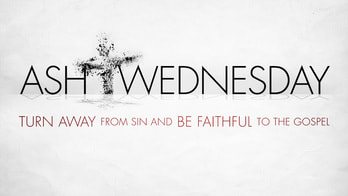
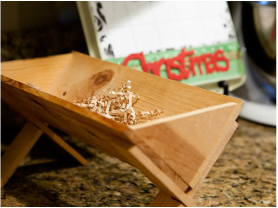
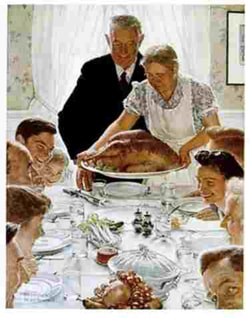



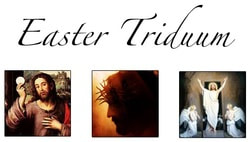




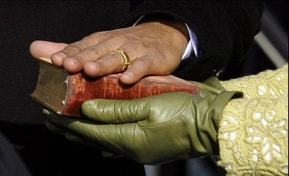

 RSS Feed
RSS Feed